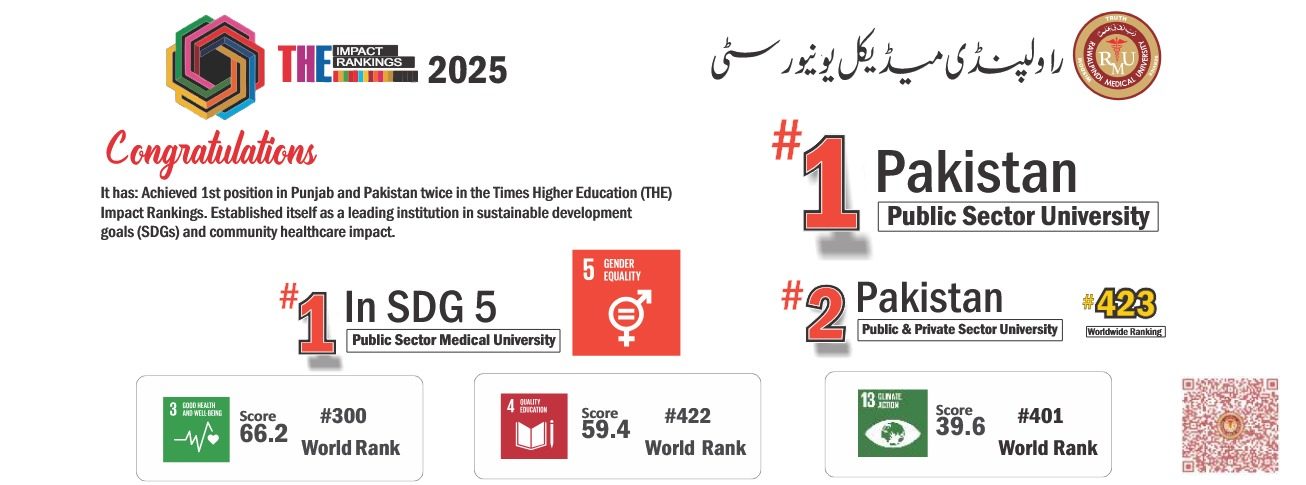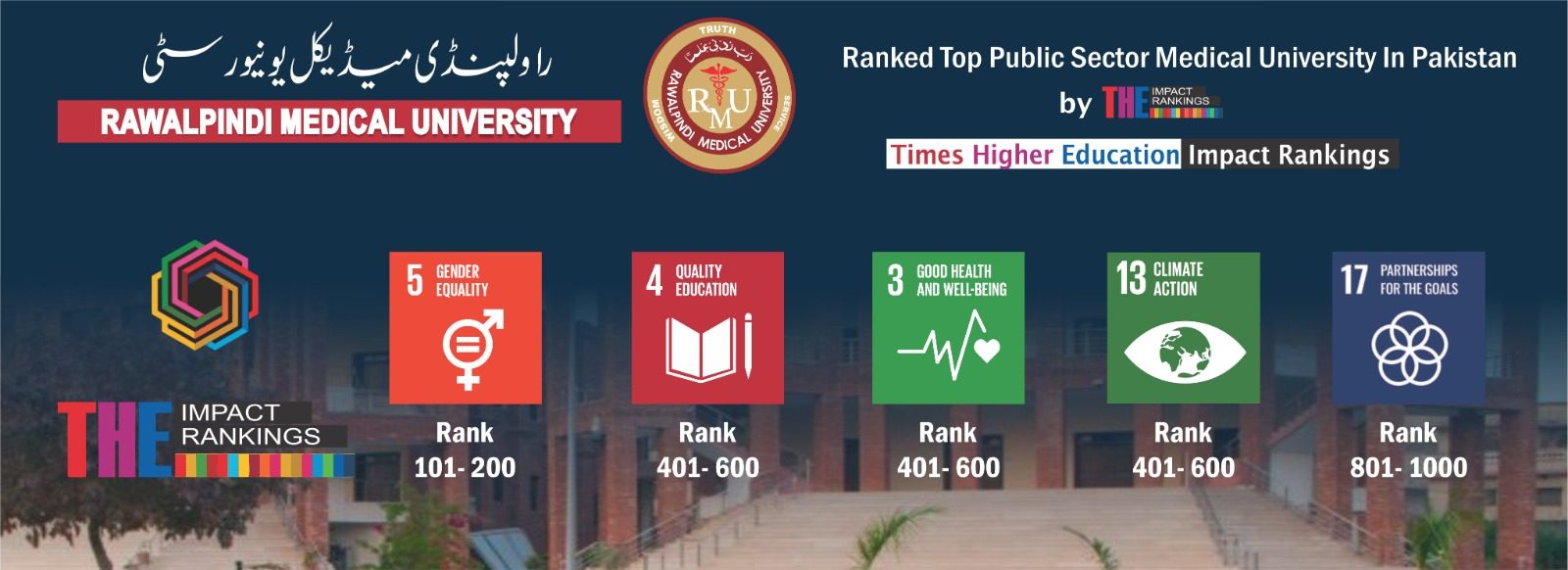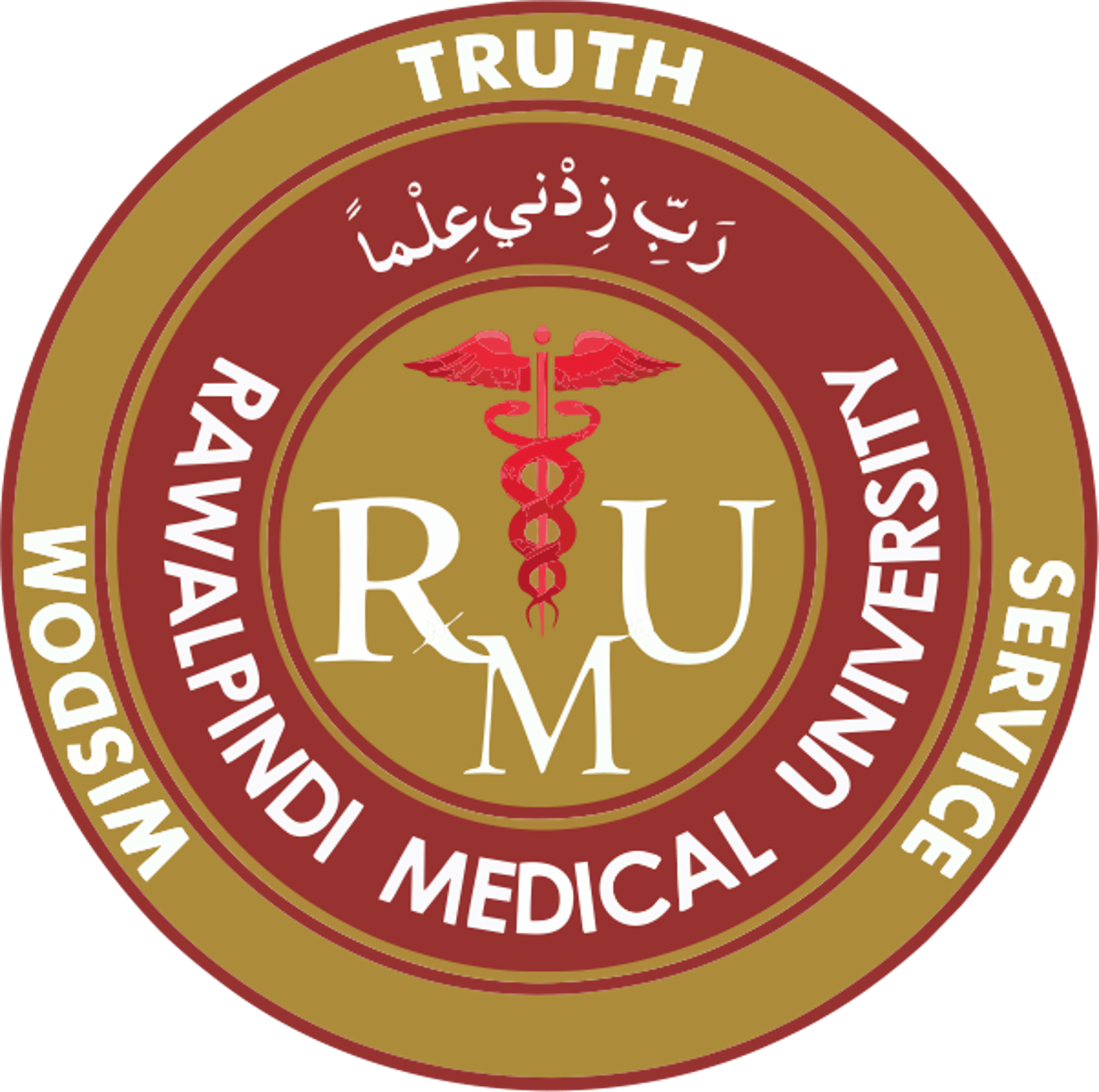RMU Global impact Sustainable Development Goals (SDGs)
THE IMPACT RANKING 2025
Overall Score
67.1
out of 100
Overall RANK
601-800
out of 2318 Institutes
SDG Participated
6
out of 17 Development Goals

















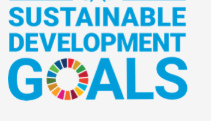
-
 Impact Rankings 2025
Impact Rankings 2025
601-800th
-
No Poverty 2025
1001+
-
Good Health & Wellbeing 2025
601-800th
-
Quality Education 2025
301-400th
-
Gender Equality 2025
74th
-
Climate Action 2025
401-600th
-
Partnership for the Goals 2025
1001-1500th
Impact Ranking positions 2021 to 2025
2025
601-800th
2024
1001-1500th
2023
801-1000th
2022
601-800th
2021
401-600th
Impact Ranking positions 2021 to 2025
2025
1001+
2024
801-1000th
2023
601-800th
2022
401-600th
2021
401+
Impact Ranking positions 2021 to 2025
2025
301-400th
2024
401-600th
2023
401-600th
2022
301-400th
2021
301-400th
Impact Ranking positions 2021 to 2025
2025
601-800th
2024
401-600th
2023
1001+
2022
201-300th
2021
101-200th
Gender Equality 2025

Impact Ranking positions 2021 to 2025
2025
401-600th
2024
401-600th
2023
401-600th
2022
401-600th
2021
101-200th
Impact Ranking positions 2021 to 2025
2025
1001-1500th
2024
801-1000th
2023
1001+
2022
1001+
2021
601-800th
Overview
Rawalpindi Medical University (RMU), aligning its vision with the United Nations’ Sustainable Development Goals (SDGs) adopted in 2015, has emerged as a leading institution committed to creating a healthier and more equitable future by 2030. With a strong focus on SDG 3 — Good Health and Well-being — RMU integrates sustainable principles into its medical curriculum, research, and community health initiatives, actively contributing to the eradication of diseases, promotion of universal healthcare, and innovation in public health solutions. In recognition of these efforts, RMU achieved a significant global presence in the 2025 Times Higher Education (THE) Impact Rankings, securing a position in the 601–800 band globally and being ranked 1st in Punjab and 2nd among all medical universities in Pakistan. Particularly notable is its 74th global rank in Gender Equality (SDG 5) and a 301–400 position in SDG 3 (Good Health and Well-being), underscoring its commitment to gender empowerment and healthcare accessibility. RMU also earned high placements in Climate Action and Quality Education, demonstrating its holistic approach to sustainable development. These rankings reflect RMU’s strategic integration of the SDGs into institutional policy, academic innovation, and healthcare service, positioning it as a progressive medical university at both the national and international levels.

RMU SDGs
SDG-01
No Poverty

Rawalpindi Medical University (RMU) recognizes the importance of the United Nations Sustainable Development Goal 1 (SDG 1) to eradicate poverty in all its forms. RMU is committed to addressing this goal through supporting students from low-income families to enable them to complete their university education. Additionally, RMU plays a significant role in relieving the nation and supporting humanity by conducting free medical camps in areas of Pakistan affected by various challenges, with a dedicated team of RMU doctors, paramedical staff, and supporting personnel.
Support for Students from Low-Income Families
Scholarships and Financial Aid: RMU offers a variety of scholarships and financial aid packages to students from low-income families. These awards help cover tuition fees, textbooks, and other educational expenses, thus reducing financial barriers to education.
- Free Housing: RMU provides on-campus housing facilities to students from low-income backgrounds. This ensures a safe and comfortable living environment, allowing students to focus on their academic pursuits.
- Complimentary Transportation: The university offers transportation services to students from low-income families, making it easier for them to access the campus without being burdened by transportation costs.
- Meal Assistance: Collaboration with welfare groups and non-governmental organizations (NGOs) enables RMU to provide free meals to students who require this support. This initiative ensures that students have access to nutritious meals, contributing to their overall well-being and academic success.
- Legal Services: RMU has established a legal aid center, offering pro bono legal services to students, particularly those from low-income families. This support addresses legal concerns and ensures access to justice.
- Relief Efforts in Pakistan: RMU plays a crucial role in supporting the nation and humanity by organizing free medical camps in areas of Pakistan that are affected by various challenges, including natural disasters and public health crises. These efforts are carried out by a dedicated team of RMU doctors, paramedical staff, and supporting personnel. The medical camps provide essential healthcare services, such as medical consultations, vaccinations, and health education, to underserved communities.
Impact and Significance:
RMU’s comprehensive support system for students from low-income families and its relief efforts in affected areas of Pakistan have a significant impact. By reducing financial barriers to education and providing crucial medical services, RMU is contributing directly to addressing the “No Poverty” goal while also promoting the well-being of communities.
Conclusion:
Rawalpindi Medical University is committed to supporting students from low-income families, providing them with the tools and resources they need to complete their university education. Additionally, RMU’s relief efforts in affected areas of Pakistan exemplify its dedication to supporting the nation and humanity in times of need. These initiatives align with SDG 1 and demonstrate RMU’s role in creating a more inclusive, equitable, and compassionate society.
SDG-02
Zero Hunger

Ramadan/Eid Food Relief Drive
Rawalpindi Medical University’s SYNCH organization successfully organized an iftar drive. During this charitable event, a significant number of food boxes were distributed among individuals in need and who are deserving of assistance. The initiative aimed to provide nourishing meals to those who may be facing economic challenges and to promote the spirit of sharing and kindness within the community. SYNCH’s commitment to such initiatives reflects the university’s dedication to social responsibility and humanitarian efforts. This event not only provided essential sustenance to those in need but also fostered a sense of unity and compassion within the community.
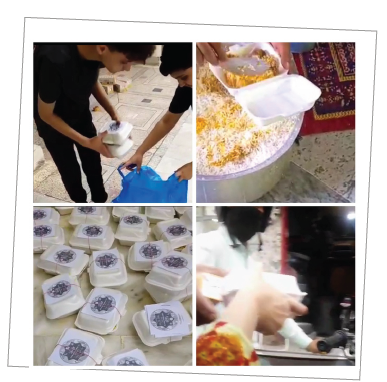
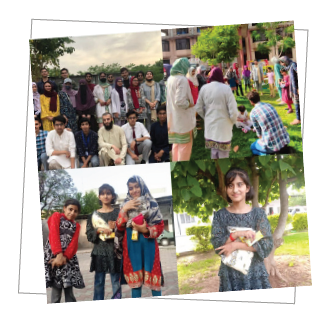
RMU Food Donation Drive
The team from Rawalpindi Medical University visited Edhi Home in H-8 Sector Islamabad. Our dedicated volunteers actively engaged with the children at the home, creating a warm and joyful environment. Not only did they spend quality time interacting and playing with the kids, but they also spread the spirit of Eid by presenting them with special Eid gifts. These gifts included a variety of toys that brought smiles to the children’s faces, as well as delicious eatables to make their Eid celebrations even more delightful. The visit to Edhi Home was a heartfelt effort to bring happiness and a sense of belonging to these children, underlining our commitment to making a positive impact in the community. It exemplifies Rawalpindi Medical University’s dedication to spreading joy and fostering a sense of togetherness during special occasions.
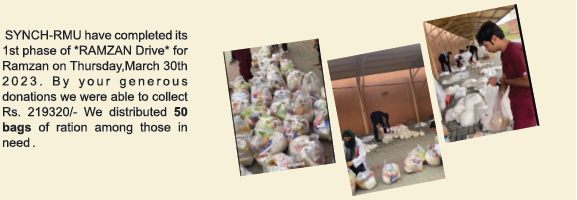
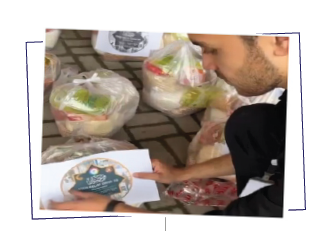
Visit To old Home
SYNCH RMU’s volunteers visited old home i.e; MGQ, memorial trust. The visit included arrangements for lunch, cakes, and gifts for the residents. Engaging with the residents, listening to their life stories, and providing emotional support brightened their day.
Food and Quality Control In the Campus
Rawalpindi Medical University is proud to offer a diverse range of food options on campus, tailored to meet students’ individual preferences. Our healthcare department diligently supervises and approves the food services, ensuring adherence to multiple food- grade and cleanliness standards. This includes a variety of choices to accommodate vegetarian and vegan diets. Moreover, our commitment to providing halal options aligns with our country’s dietary requirements, reflecting our dedication to students’ well-being and inclusivity. This report highlights the university’s ongoing efforts to provide high- quality, accommodating, and health-conscious dining options for our student body.
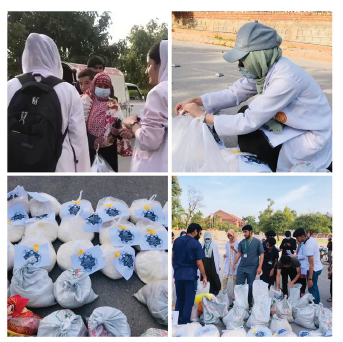
SDG-03
Good Health & Wellbeing

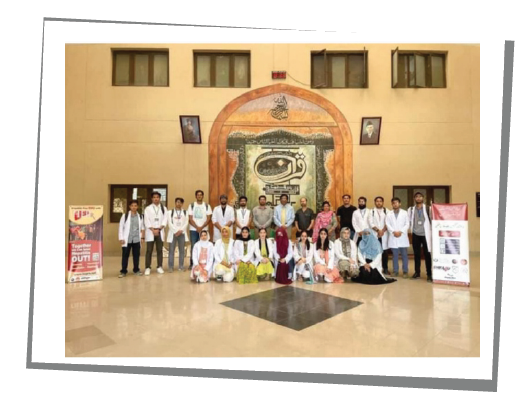
Educational Awarness
Rawalpindi Medical University’s campaign and sessions have a dual focus:Educational Awareness: These initiatives aim to enhance students’ understanding of the adverse health effects of smoking. Supporting a Smoke-Free Campus: The university actively promotes and enforces a smoke-free policy, encouraging students to adhere to it.Smoking Cessation Support: The campaign assists smokers in quitting using personalized methods that best suit their needs. Community-Wide Impact: Additionally, students are educated on highly effective strategies to reduce smoking prevalence within the university community.The university’s commitment to a smoke-free policy and awareness programs ensures that students follow this initiative, fostering a healthier campus environment and prioritizing the well- being of the entire university community.
Hepatitis B and C Screening Camp
Hepatitis B and C screening camp was arranged in New Teaching Block Rawalpindi Medical University by VFAHT (Volunteer Force Against Hepatitis Transmission) in collaboration with Rawalian Community Awareness Program, Shifa4U, CLD & Martin Dow. Up to 270 students were screened, all of whom turned negative. This was the first camp of Phase 1 of RMU Hepatitis Free Zone project. The camp was conducted under the supervision of Vice Chancellor Prof. Dr. Muhammad Umar
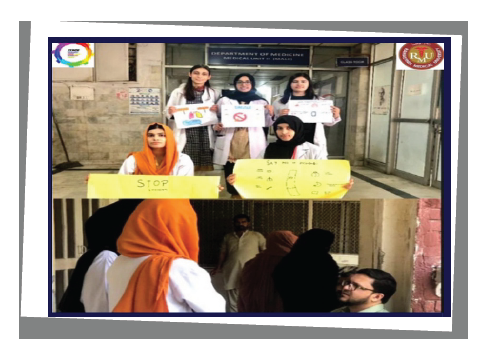
World Mental Health Day 2023
On October 10th, 2023, the Institute of Psychiatry, Rawalpindi Medical University (RMU) organized an awareness symposium to commemorate World Mental Health Day. This event served as a platform for experts and professionals in the field of mental health to share their insights and knowledge with a diverse audience.The session was inaugurated by Prof. Asad Nizami, who is not only the Professor and Chairman of the Institute of Psychiatry at RMU but also holds the position of Dean of the Faculty of Psychiatry at the College of Physicians and Surgeons Pakistan (CPSP). He highlighted upon the theme that “mental health is a Universal Human Right” and stressed on the public health perspective of mental health
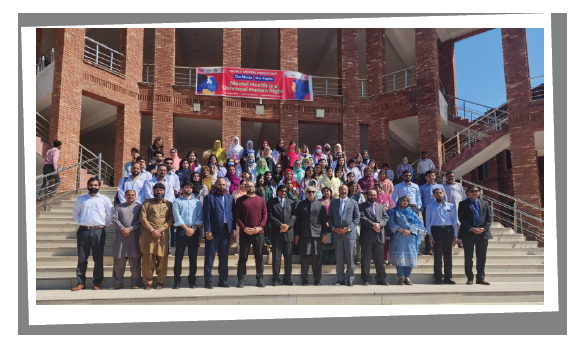
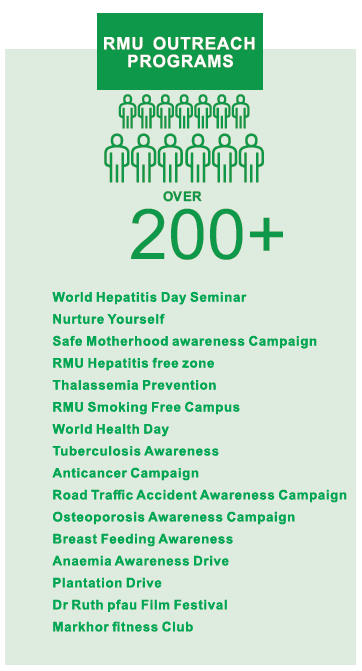
Rawalpindi Medical University Current Collaborations With Local, National or Global Health Institutions to Improve Health & Well-being Out Come
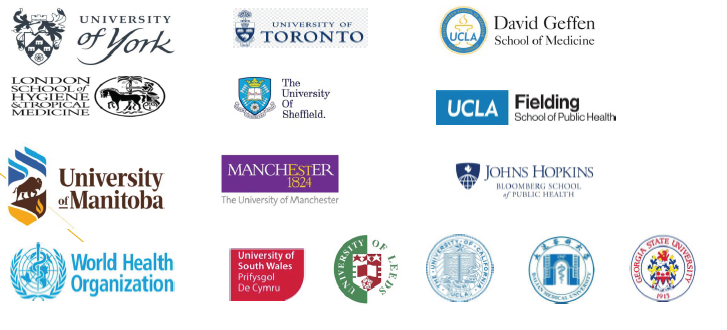
SDG-04
Qality Education

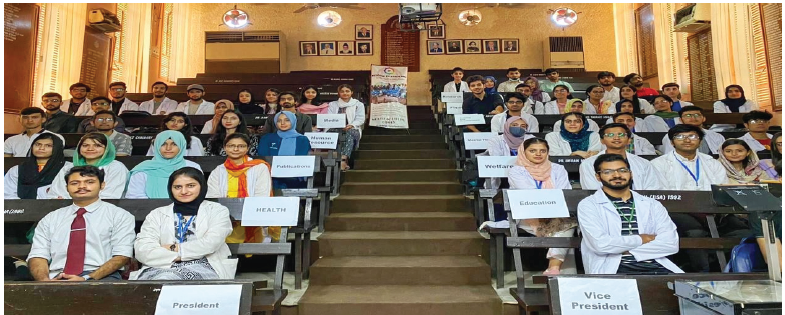
Educational Efforts Aim
Enhance the knowledge and awareness of a health issue, problem, or potential solution within the target audience.Shape perceptions, beliefs, and attitudes to potentially modify social norms related to the health concern. Prompt proactive action among individuals and communities in addressing the health issue.Demonstrate or illustrate practical, healthy skills that empower individuals to make informed choices. Reinforce positive knowledge, attitudes, or behaviors related to health and well-being.Showcase the benefits of behavior change and adopting healthier lifestyles.Advocate for a specific position on a health issue or policy, promoting informed decision-making.Increase the demand for, and support of, accessible health services in the community.Challenge and debunk myths and misconceptions that may hinder effective health decision-making.Strengthen relationships between organizations and their stakeholders to foster collaborative efforts in addressing health concerns.
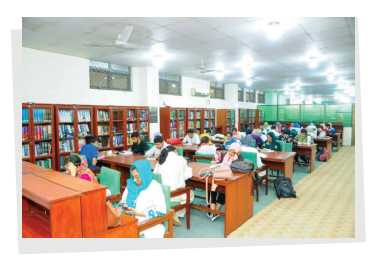
RMU Library
Rawalpindi Medical University’s library is a remarkable facility located at the heart of our campus, featuring an iconic gold and glass structure. Our library provides a range of study spaces, a wealth of resources, valuable archives, and unique collections. Our dedicated staff offer their expertise, comprehensive support, and actively engage in outreach and public involvement.We extend a warm invitation to the public, researchers, and students from other educational institutions to access and benefit from our library. For details regarding our operating hours during vacations, closures, andspecial observance days.
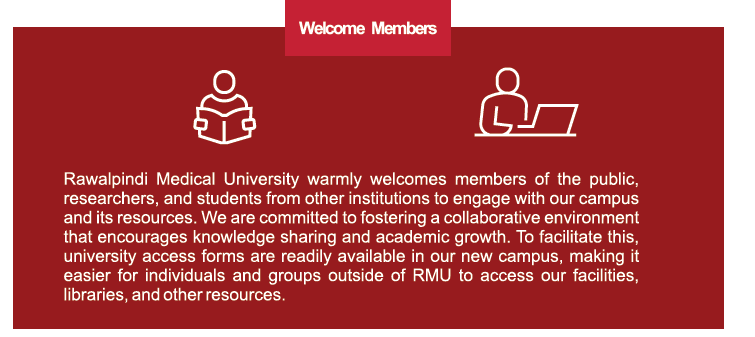
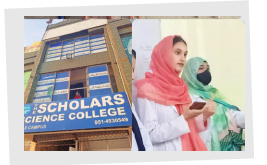
GETS Academy
SYNCH RMU Education department conducted it’s 4th MDCAT guidance session at GETS Academy DERA GHAZI KHAN on 21th July 2023 supervised by AYESHA SIDDIQA (Deputy Head Education dept).General guidelines about the test pattem, subjects preparation, time management and ways to deal stress inthis time were discussed.
Scholars Academy
SYNCH RMU Education department conducted it’s 3rd MDCAT guidance session at Scholars Academy Wah Cantt Academy on 20th july 2023 supervised by Ayesha Nighat (Executive Member Education dept).General guidelines about the test pattern,subjects preparation, time management and stress coping were given. At the end all the queries of students were answered. Session was well applauded & students felt very satisfied at the end of session.

SDG-05
Gender Equality

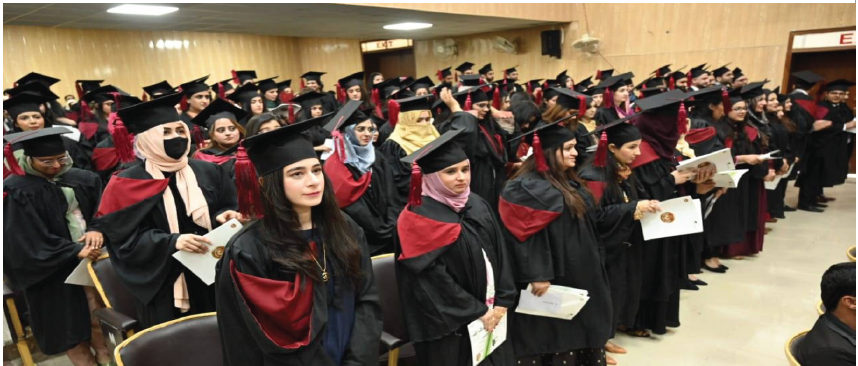
Female Students in Rawalpindi Medical University
Rawalpindi Medical University, with a total enrollment of 3,755 students, is committed to promoting gender equality in its educational programs. In accordance with the data, here’s a detailed breakdown of the university’s student population, particularly focusing on gender equality:Total Students: Rawalpindi Medical University has a diverse student body consisting of 3,755 individuals pursuing various degree programs. Women Starting a Degree This Year: Among these students, 733 women have embarked on their educational journeys this academic year. This demonstrates the university’s dedication to providing educational opportunities for women, contributing to gender equality in higher education.Rawalpindi Medical University’s efforts to support female students in their pursuit of higher education contribute to the broader goals of gender equality and empowerment, promoting diversity and inclusivity in the academic community. These initiatives help create a more equitable and inclusive society by providing women with the chance to excel in their chosen fields of study.

Campus Operations
Rawalpindi Medical University (RMU) is committed to supporting the well-being and work-life balance of its staff and faculty members. As part of this commitment, RMU provides day care facilities at its New Campus, which is situated within the Holy Family Hospital complex. These day care facilities are designed to cater to the needs of staff and faculty members who are parents or guardians of young children, ensuring that they can pursue their professional roles while knowing that their children are in a safe, nurturing, and educational environment.
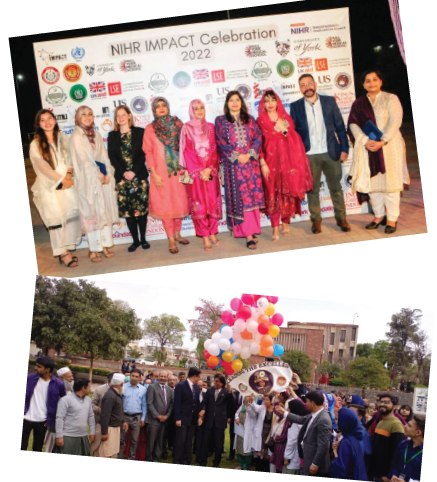
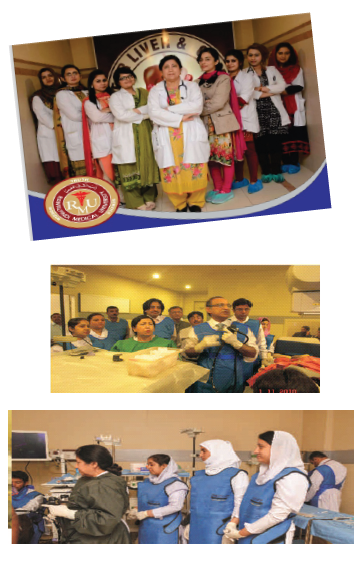
No Discrimination Policy
Rawalpindi Medical University, a government functionary according to the rules has a policy which seeks to guarantee that human rights are exercised without discrimination of any kind based on race, color, language, religion, political or other opinion, birth or other status such as disability, age, marital and family status, sexual orientation and gender identity, health status, place of residence, economic and social situation.
SDG-06
Clean Water and Sanitation

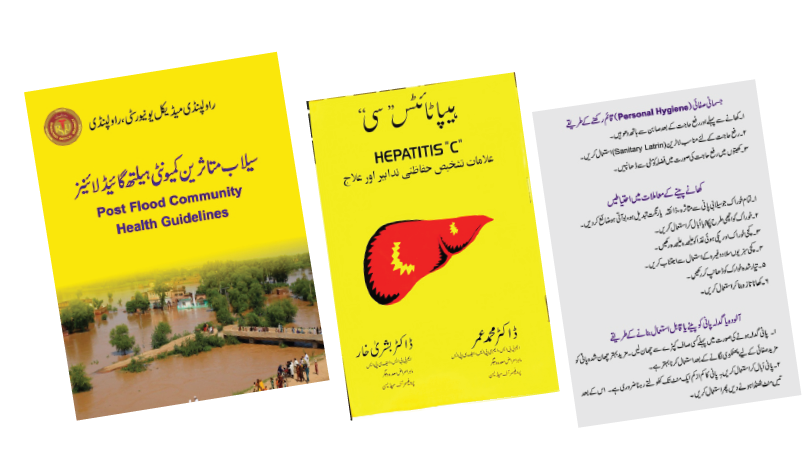
RMU Water Consumption Policy
Rawalpindi Medical University (RMU) clean water consumption policy for students and staff of university emphasises on following elements:
- Access to Clean Drinking Water: The policy ensures that students have easy access to clean and safe drinking water at various locations across the campus and within hostel buildings. This includes water coolers and water dispensers.
- Availability 24/7: To promote healthy hydration habits, the policy ensures that clean water is available to students 24/7. This means students can access water at any time, whether it’s daytime, evening, or during the night.
- Regular Maintenance: The university is committed to regularly maintaining and servicing water facilities to ensure the quality and safety of the water supply.
- Water Conservation: While providing 24/7 access to water, the policy also emphasizes the importance of responsible water use. Students may be encouraged to use water efficiently and not waste it.
- Education and Awareness: Rawalpindi Medical University also runs awareness campaigns to educate students about the importance of staying hydrated and maintaining good water consumption practices.
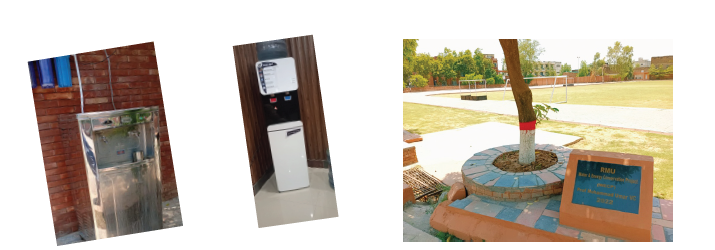
RMU Water Conservation Project
Project Overview:
The RMU Playground Rainwater Harvesting System is a successfully executed project that has added a 5000- gallon capacity rainwater harvesting system to the university’s playground. This system efficiently collects and stores rainwater for non-potable uses, contributing to water conservation and sustainability at RMU.
Project Components:
Rainwater Collection System:
A rainwater collection system was installed on the rooftops of nearby buildings, designed to capture and channel rainwater into the storage tank.
Storage Tank:
A 5000-gallon storage tank was securely positioned in the playground to hold the harvested rainwater.
Filtration and Purification:
Filtration and purification systems were integrated to ensure the quality of the harvested rainwater, making it suitable for its intended non-potable purposes.
Distribution System:
A distribution network was established to channel the collected rainwater to various non-drinking water demands across the campus, such as landscape irrigation, toilet flushing, and outdoor cleaning.
Monitoring and Maintenance:
A monitoring system and maintenance schedule were put in place to ensure the efficient operation and longevity of the rainwater harvesting system.
Project Outcomes:
RMU now has a reliable source of non-potable water for campus needs, reducing reliance on the municipal water supply.
The university has experienced cost savings on water bills due to reduced consumption from the municipal supply.The project has made a significant contribution to environmental sustainability by conserving local water resources and promoting responsible water management.
Project Completion:
The RMU Playground Rainwater Harvesting System was successfully implemented within the projected timeframe, and it is now fully operational, providing tangible benefits to the university.
This completed project exemplifies RMU’s commitment to environmental responsibility, sustainability, and efficient resource management. It stands as a model for water conservation initiatives that can
SDG-07
Affordable and Clean Energy

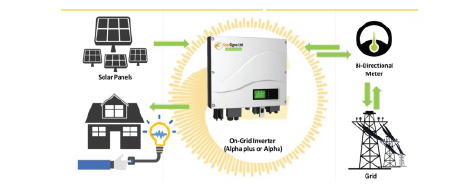
Project Overview
The Rawalpindi Medical University (RMU) Solarization Project involves the installation of two distinct solar power systems: a 150 KW grid-tied solar system and a 20 KW hybrid solar system. Both systems are equipped with net- metering capabilities. The project aims to harness renewable solar energy to reduce the university’s dependence on conventional grid electricity and lower its carbon footprint.
Components of the Project:- 150 KW Grid-Tied Solar System: The 150 KW grid-tied solar system consists of photovoltaic panels installed on the rooftops or open areas within the RMU campus. This system is grid-tied, meaning it is connected to the local electricity grid. Excess electricity generated by the solar panels is fed back into the grid. Net-metering technology is incorporated, allowing RMU to measure the electricity produced by the solar system and any excess electricity supplied to the grid. The university is credited for this surplus energy.
- 20 KW Hybrid Solar System: The 20 KW hybrid solar system combines solar panels with energy storage capabilities, such as batteries. This system can store excess solar energy generated during the day for use during periods of low sunlight or at night, providing RMU with energy resilience.
Benefts and Outcomes
- Reduced Electricity Bills: By generating clean solar energy, RMU can significantly reduce its electricity bills, resulting in cost savings.
- Environmental Impact: The project reduces the university’s carbon footprint by decreasing reliance on fossil fuels for electricity generation.
Energy Resilience: The hybrid solar system with energy storage ensures a continuous power supply even during grid outages or at night. - Net-Metering Credits: RMU receives credits for surplus electricity it supplies to the grid, potentially offsetting future energy costs.
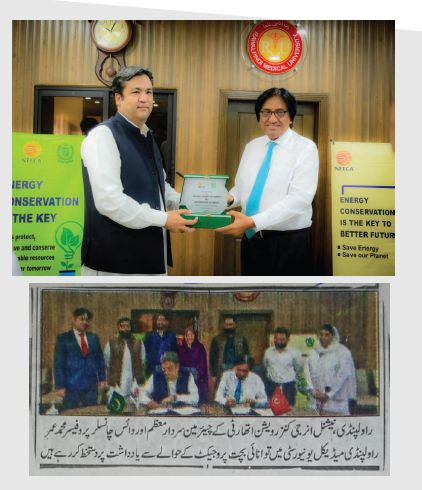
RMU Energy Partnerships
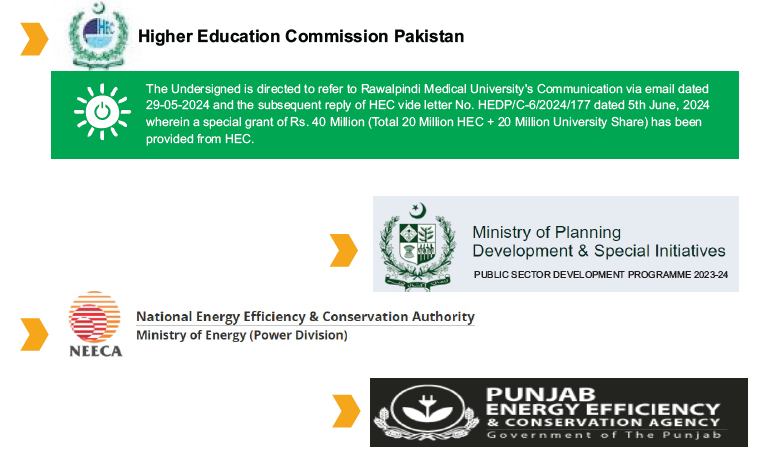
SDG-08
Decent Work and Economic Growth

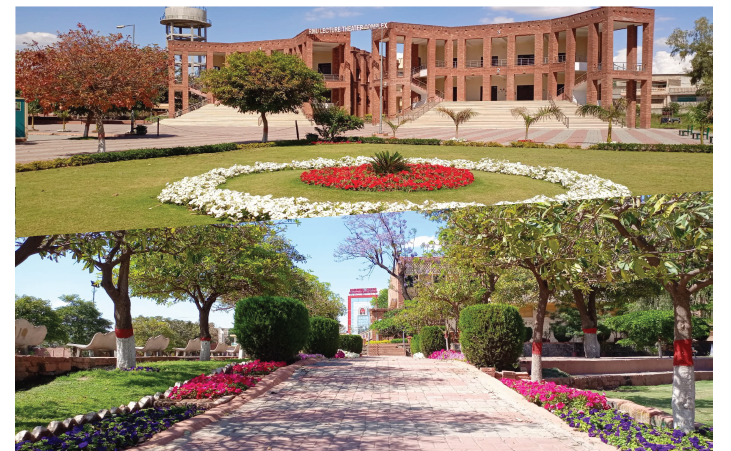
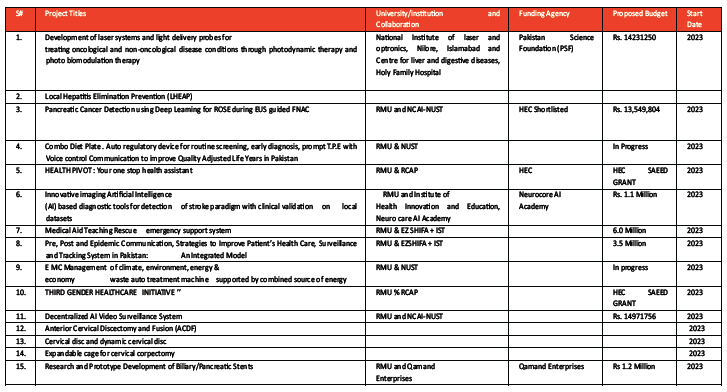
Rawalpindi Medical University (RMU) adheres to the regulations and policies outlined in the Punjab Civil Servants Act, 1974. The university operates in compliance with the rules and guidelines established under this act. This commitment to following the provisions of the Punjab Civil Servants Act, 1974 ensures that RMU maintains transparent and accountable governance while managing its workforce effectively. By aligning with these regulations, RMU upholds the principles of fairness, discipline, and professionalism in its administrative and employment practices, contributing to the efficient operation of the institution and the welfare of its employees. Detail can be accessed on official website of Rawalpindi Medical University: https://rmur.edu.pk/rmu-policies/
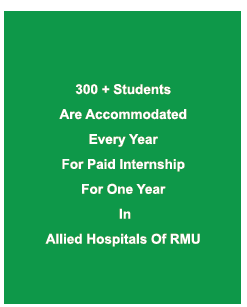
On up-gradation of Rawalpindi Medical College to Rawalpindi Medical University on 5th May, 2017, Residency Program of Rawalpindi Medical University was launched to offer rigorous and vibrant postgraduate degree programs. Our University Residency Program entails MS, MD, M.Phil, PhD, Certificate and Diploma courses. These residency programs are meant to get our residents well equipped with knowledge and skills deemed inevitable to compete with international doctors and to improve the healthcare of the nation.
Rawalpindi Medical University provides excellent opportunities to its postgraduate residents and worthy faculty for scholarships, linkages, and collaborations with the renowned universities of the world ranking high in research projects. The faculty members are actively engaged in several training and research programs with universities, institutions, and centers in the technologically advanced countries.
The university provides excellent academic facilities through its fully equipped laboratories, library, museums, information technology facility, and video conferencing, besides good logistic facilities at departments, hostels, and the campus in general.
We hope that joining the Rawalpindi Medical University & enrolling in the University Residency Program will pave the way for the upcoming generation towards a new horizon of excellence and prosperity.
MISSION
To provide residents with a comprehensive structured education and training in both basic and clinical sciences that will enable the resident to become competent and proficient.
VISION
To disseminate best services and bring innovation in treatment and preventive strategies through research that spans fundamental discovery, health care services and knowledge mobilization
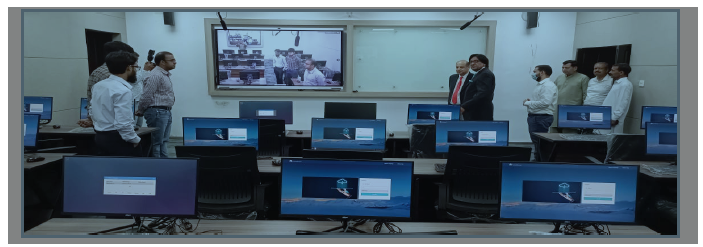
SDG-09
Industry, Innovation and Infrastructure

Rawalpindi Medical University Promotes Innovation Through Academic Collaboration
Collaborations between student research societies and community awareness programs offer several justifications for being a valuable initiative:
- Knowledge Transfer: Student research societies typically consist of individuals with a deep understanding of various research areas. Collaborating with community awareness programs allows them to transfer this knowledge to a broader audience. This not only educates the community but also provides students with a real-world platform to apply and communicate their research findings.
- Addressing Community Concerns: Community awareness programs are often focused on addressing local or societal issues. Partnering with research societies ensures that research conducted is directly relevant to these concerns. The research can provide evidence-based solutions, thereby enhancing the impact of community initiatives.
- Skill Development: Collaboration events provide a unique opportunity for students to develop crucial skills. They learn how to present their research effectively, engage with diverse audiences, and work in multidisciplinary teams. These skills are transferable and highly valuable in both academic and professional settings.
- Innovation and Creativity: Bringing together research enthusiasts from different backgrounds fosters innovation and creativity. Diverse perspectives lead to fresh ideas and innovative approaches to problem-solving. These discussions can inspire new research projects and community engagement strategies.
- Networking Opportunities: Collaboration events facilitate networking between students and community members. This can lead to research partnerships, mentorship opportunities, and even job prospects for students. For community members, it offers a chance to connect with experts and organizations that can support their causes.
- Community Engagement: Engaging the community in research and awareness activities empowers them to be part of the solution. When they actively participate, they become stakeholders in the process and are more likely to support and sustain community initiatives.
- Promoting a Research Culture: Collaboration between students and the community helps promote a culture of research and innovation. It encourages young individuals to consider research as a career option, fostering a sense of curiosity and an appreciation for evidence-based decision-making.
- Measurable Impact: By integrating research into community awareness programs, the impact of these initiatives can be more measurable and data-driven. This allows for a better assessment of the effectiveness of the programs and helps in making evidence-based improvements.
- Resource Sharing: Student research societies often have access to research tools, libraries, and expertise. Collaborating with community programs can provide them with real-world data and access to the community’s knowledge and experience, creating a mutually beneficial knowledge exchange.
- Societal Relevance: By conducting research in collaboration with the community, the research conducted becomes more
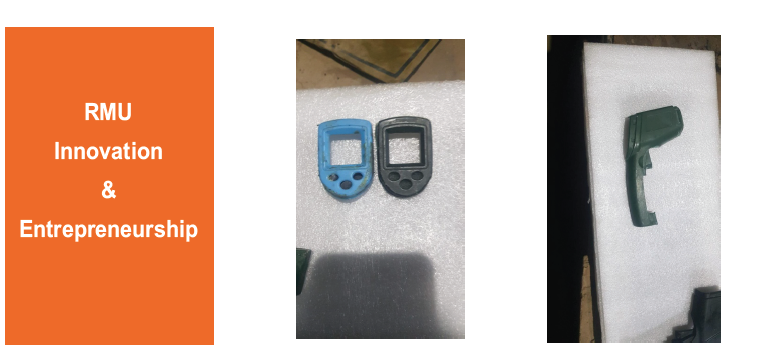
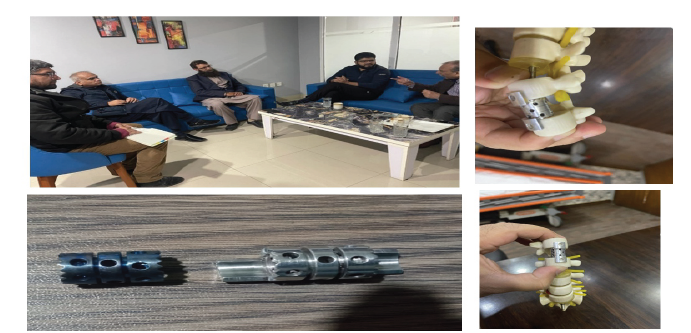
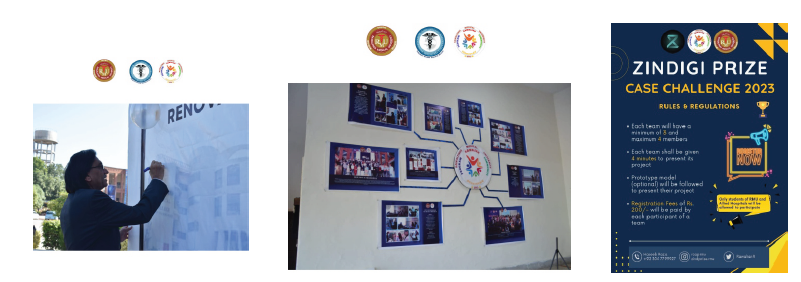
SDG-10
Reduced Inequalities


Education for all without any Discrimination at RMU
Rawalpindi Medical University (RMU) upholds the principle of open merit and practices inclusivity in its admission policies. The university welcomes applicants from all walks of life, regardless of their ethnic background, religion, sect, gender, or geographical origin. RMU is committed to providing equal opportunities to all individuals who aspire to pursue higher education in the medical field. By adopting a non-discriminatory approach, RMU ensures that its admissions process is fair, unbiased, and open to all, fostering diversity and inclusivity within its academic community. This commitment reflects RMU’s dedication to promoting education and healthcare in a spirit of equality and social harmony.
Pakistan is a partner in the global movement for the socio-economic well-being of persons with disabilities having signed and ratified the UN Convention on the Rights of Persons with Disabilities and adopted the Sustainable Development Goals 2030 agenda. Rawalpindi Medical University follows Higher Education Commission (“HEC”) and is committed to the objective that no one should be denied access to higher education in Pakistan, which includes ensuring that people with disabilities have equal opportunities to access and attain higher education. This policy for students with disabilities aims to create an enabling environment for inclusive education in our university and facilitate the participation of students with disabilities in all academic and extra-curricular aspects of college and university education.
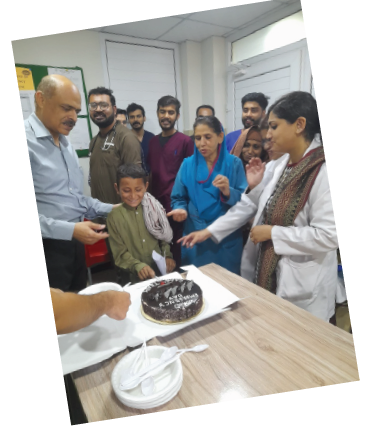
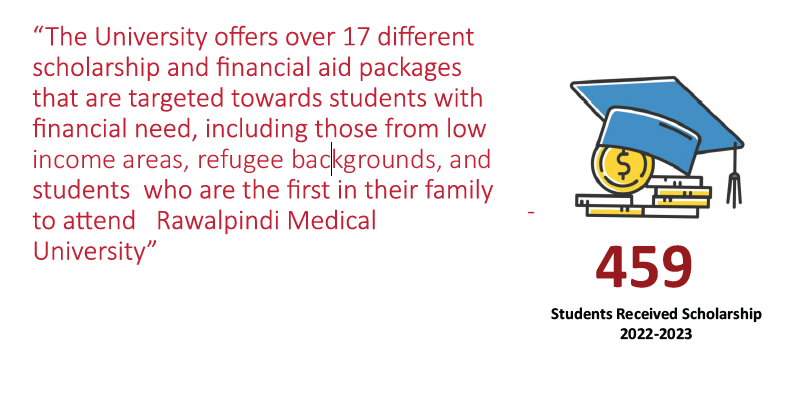
SDG-11
Sustainable Cities and Communities

RMU Promotes Sustainable Cities and Communities through education, Awareness and training thegeneral public by arranging activities in side the community, including
- World Hepatitis Day Seminar
- Nurture Yourself
- Safe Motherhood awareness Campaign
- RMU Hepatitis free zone
- Thalassemia Prevention
- RMU Smoking Free Campus
- World Health Day
- Tuberculosis awareness
- Anticancer Campaign
- Road Traffic Accident awareness campaign
- Osteoporosis Awareness Campaign
- Breast Feeding Awareness
- Anaemia Awareness Drive
- Plantation Drive
- Dr Ruth pfau Film Festival
- Markhor fitness Club
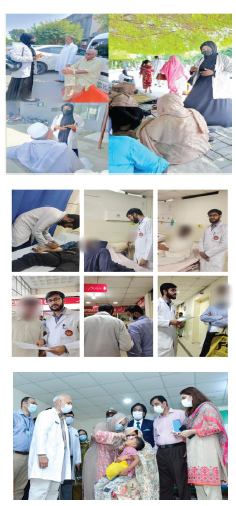
RMU is promoting sustainable cities and communities through it’s a unique healthcare project called “Hub & Spoke Model”, which encompases following aims and objectives;
- Outreach to our local community
- Identify the needs in that area
- To provide free specialized healthcare to the patients of the local community
- To make that particular area a better and healthier place to live
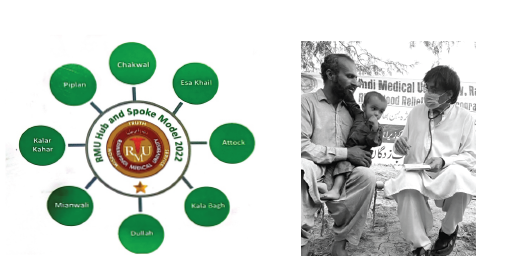
RMU follows The Principle of Sustainable Cities Through its Clean and Green Initiative
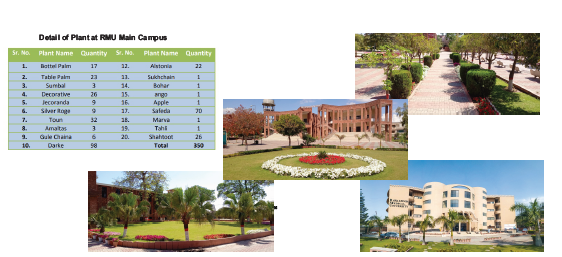
SDG-12
Responsible Consumption and Production

RMU ensures responsible conduction through a comprehensive Waste Management Plan
A comprehensive waste management plan for Rawalpindi Medical Universityand its allied hospitals is crucial to ensure the safe and environmentallyresponsible disposal of healthcare waste.
Waste Classification:
First we categorize waste into various types, such as general waste, hazardous waste, infectious waste, sharps waste, and pharmaceutical waste. This classification is essential for proper handling and disposal.
Collection and Segregation:
We implement a waste collection system that segregates different types of waste at the source.

Storage:We designate specific storage areas for each type of waste, ensuring they are secure, well-ventilated, and inaccessible to unauthorized personnel.we label storage areas with clear signage indicating the types of waste stored.
Transportation:
We establish protocols for the safe transportation of waste from the point of generation to the storage area and from storage areas to the disposal site.we ensure that waste transportation vehicles are designed to prevent leakage and are equipped with safety features.
Disposal:
We ensure that infectious and hazardous waste is properly incinerated at our state of the art incinerator.We document disposal records and maintain a chain of custody for waste from the source to final disposal.
Staff Training:
We train all healthcare workers, support staff, and waste management personnel on the waste management plan and procedures.we conduct periodic refresher training to keep everyone updated on best practices.
Compliance with Regulations:
We ensure that the waste management plan complies with national and local regulations for healthcare waste management. We stay informed about any changes or updates to waste management regulations and adapt the plan accordingly.
Monitoring and Auditing:
We implement regular waste audits to assess the effectiveness of waste management practices.We monitor waste generation rates and identify areas for improvement.
Public Awareness:
We educate patients, visitors, and the community about proper waste disposal practices.
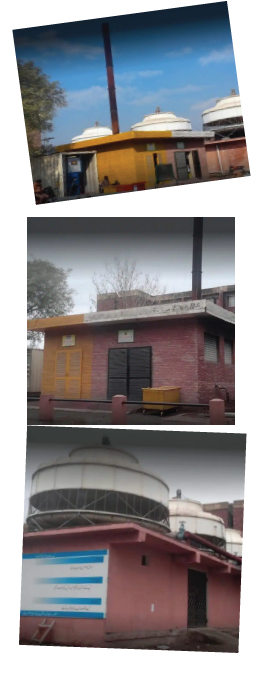
SDG-13
Climate Actions

RMU Clean and Green Initiative
Clean and Green Initiative, of Rawalpindi Medical University is showing its excellence not only just in the field of education but also in horticulture facilitating environmental improvement. In the wake of National Plantation Campaign initiated by Govt of Pakistan, RMU established Green Task Force to ensure lush green outfields, and planting hundreds of trees. The Global Climate Risk Index has placed Pakistan on the fifth spot on the list of countries most vulnerable to climate change in its annual report for 2020. RMU is playing its parts by conducting plantation campaigns, with zealous involvement of students & faculty. All allied hospitals, medical college, RMU colony are decorated with different varieties of plants.
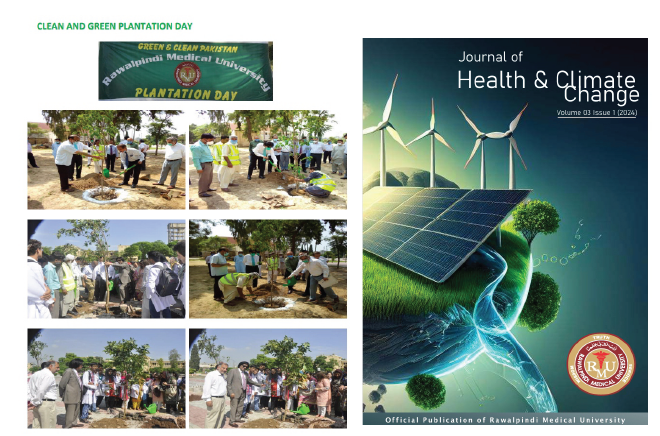
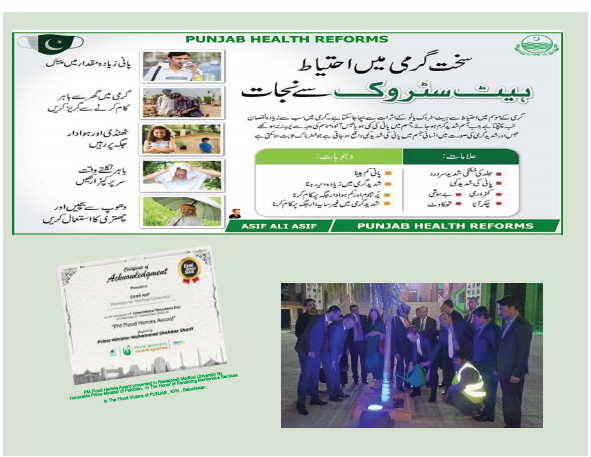
Rawalpindi Medical University Flood Relief Action Program
Extreme monsoon rains have caused the worst floods in Pakistan’s recent history, destroying communities and increasing the danger of waterborne infections, drowning, and starvation. Hundreds of thousands of houses have been destroyed, along with several public health institutions, water infrastructure, and schools. More than 664,000 people have taken refuge in displacement camps, with many needing basic housing, food, water, and sanitation-Rawalpindi Medical University (RMU) activated its Flood Relief Action Program led by Prof. Dr. Muhammad Umar (S.I), Vice Chancellor, RMU. The Program comprised of organizing free medical camps in South Punjab, Khyber Pakhtunkhwa, Sindh and Balochistan. A book on Post-Flood Community Health Guidelines has especially been published by RMU in collaboration with Higher Education Commission (HEC) of Pakistan to guide the community and healthcare workers on preventing and managing waterborne infections. It is for the first time that a practical initiative in the form of “Ready RMU—Preventive Kit” and “Ready RMU—Hygiene Kit” for the prevention of malaria and gastroenteritis has been prepared in huge numbers and are being distributed in all the flood-affected areas to prevent waterborne infections.
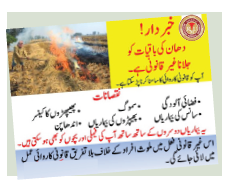
SDG-14
Life Below Water


Ready RMU Hygiene Kit
As a preventive measure against Gastroenteritis and Malaria, RMU has created its own hygiene kitslabeled “Ready RMU – Hygiene Kit.” This is the first time such an initiative has been undertaken. These kits are being delivered in huge quantities around the nation in regions hit by flooding.

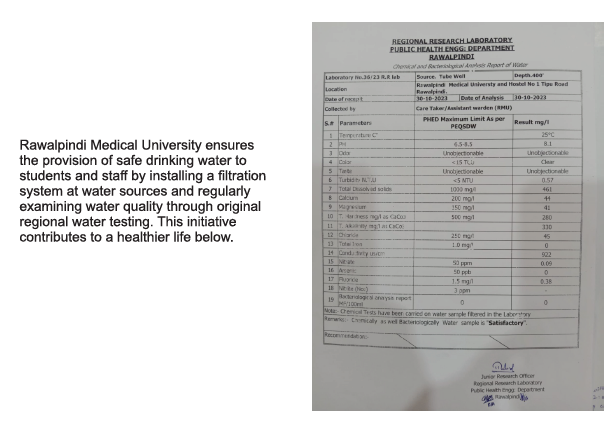
SDG-15
Life on Land

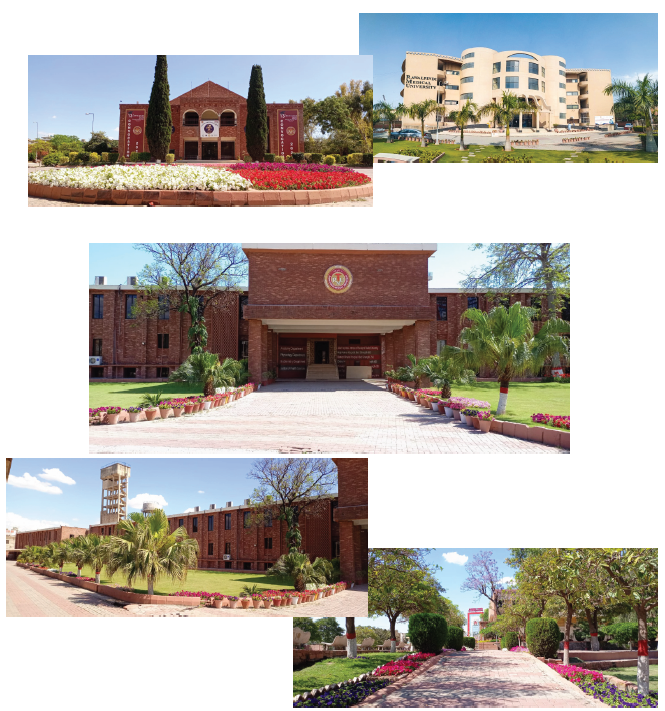
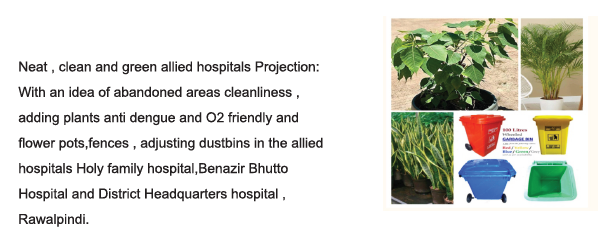
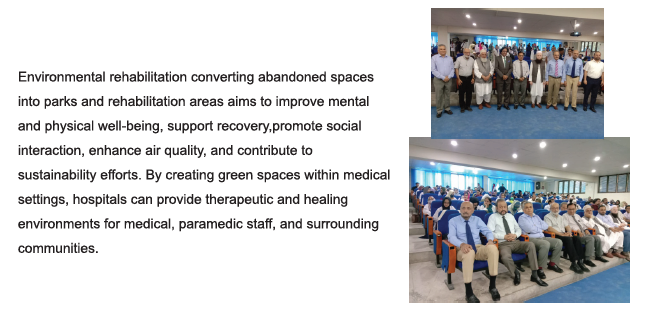
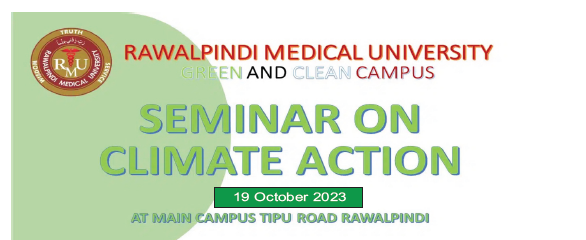
SDG-16
Peace Justice & Strong Institutions

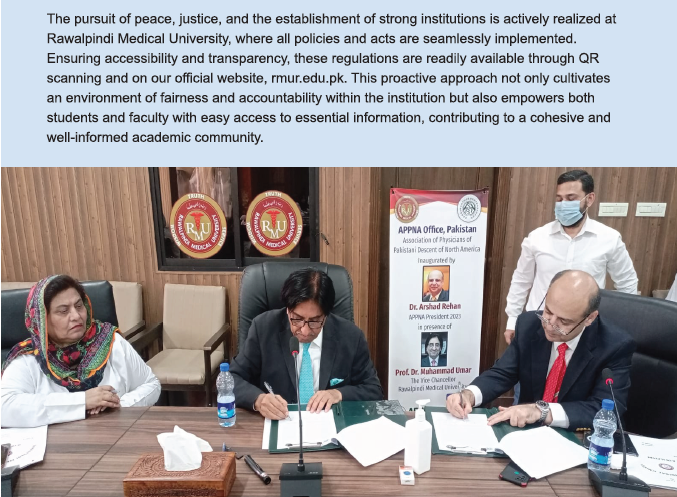
SDG-17
Partnership for the Goals



